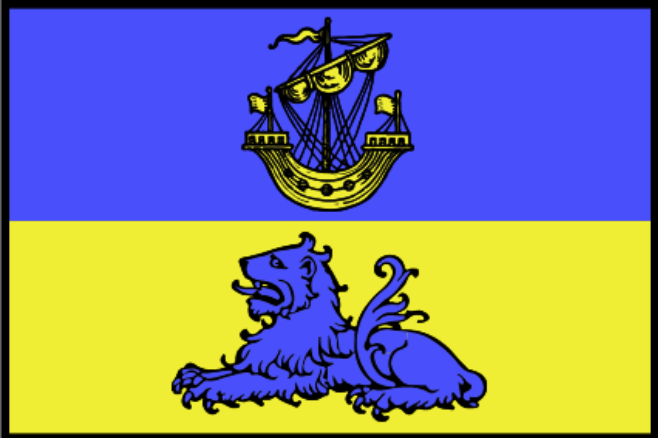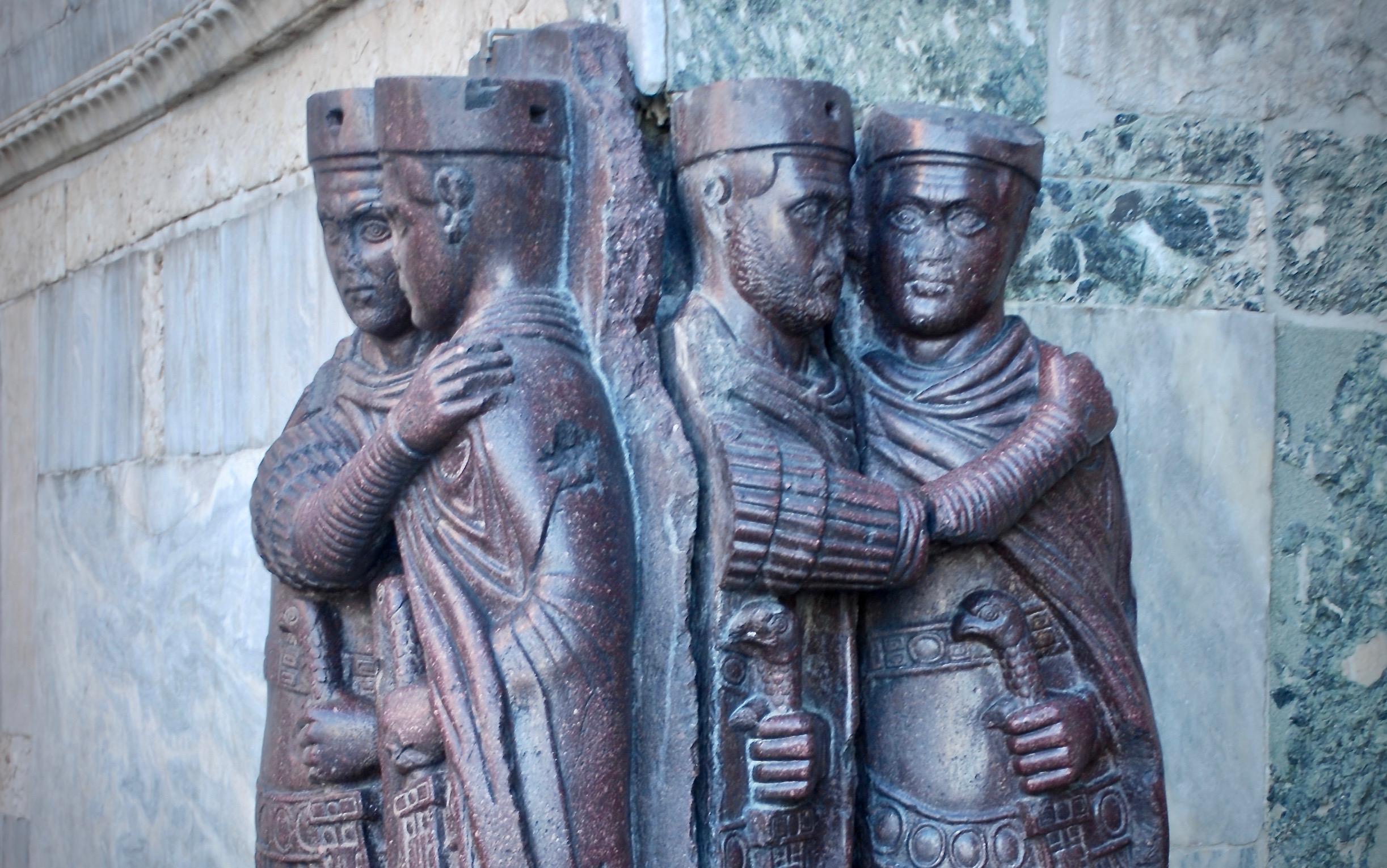Rahhail
Nestled in a small corner of land, caught between the Kingdom of Dazscor and Aramore, the Kingdom of Sharisar and the waves of the Estrill Ocean, lies the small nation of Rahhail. The city-state lies nestled within a verdant valley, known simply as Green Vale, that descends out of the Uplands of Ara and stretches down to the eastern shore of Turoza. Rahhail has existed as an independent nation since the beginning of the Settlement Era, and its inhabitants even claim that their ancestors had settled permanently in the area long before the end of the Nomadic Era, such was the beauty and productivity of the valley. Rahhail’s strong geographical position, which afforded it easy access to the sea, a productive agricultural hinterland and the mineral rich hills that flank the valley sides, allowed the small nation to grow into a bustling hub of trade, which in turn brought coin in huge quantities to the nations coffers and the pockets of its people.
However, it has not all been plain sailing for the line of Merchant Princes that have come forth to rule Rahhail. The nations position right on the border between the two much larger Kingdoms to the north and south has always made it an object of desire and concern for both of its neighbours. The rulers of Sharisar and the Joint Kingdom have always seen Rahhail as a strategic position that the other could turn into a forward base from which to launch an attack. This feeling was heightened from the year 375S.E. onwards, when the much smaller city-state of Aramore managed to subdue and conquer Dazscor to the north, in a war that created the Joint Kingdom of Dazscor & Aramore that exists today. Aramore’s success showed just how dangerous micro-nations and city-states could be, and unfortunately Rahhail was tarred with this same brush. That is not to say that the merchant Princes of Rahhail pursued a militant or aggressive course of internal or foreign policy, but as a rich nation that could prove problematic if they began to favour one side or another, Rahhail walked a fine line. Repeated attempts were made, by both Dazscor & Aramore and Sharisar to destabilise the city-state from within, and though some of these intrigues and plots did come close to causing a serious problem, none were able to bring Rahhail to the point of collapse. Far from it, the defeat of every coup only served to bolster the spirit of defiance that grew within the people of Rahhail, who began to see themselves as standing up against the bullying tactics of their larger neighbours. In the year 520S.E., however, Rahhail faced its greatest ever challenge for survival.
In the face of a gradual decline in diplomatic relationships between Dazscor & Aramore and the Kingdom of Sharisar, the then ruler of the Joint Kingdom, Eorich II, hatched a rather farfetched scheme, designed not only to bring more trust between the two great nations, but also to remove Rahhail from potentially becoming a Sharisian pawn on the border of his Kingdom. Through an ingenious an complex plot, Eorich engineered the assassination of his own ambassador to Rahhail, and the Sharisian ambassador on the same night, at the hand of a Rahhail native, who was well known as being highly radical in their views towards Rahhail’s neighbours. Despite the Merchant Prince’s attempts to repair the situation, including vehement denials that the assassin had any form of blessing from his government, and even delivering up the perpetrator for judgement by Dazscor & Aramore or Sharisar, the two larger Kingdoms, outraged at the events (and in reality needing little excuse for war), began to mobilise their forces against Rahhail. Unfortunately for both the aggressors, what they thought would be a swift and decisive victory, turned into a war that lasted for over two years. Their campaign was plagued by a lack of communication between their forces, which resulted in a large number of clashes between Aramorian and Sharisian troops who were supposed to be fighting together, a complex joint chain of command that never worked, and most decisively the unaccounted for resilience and bravery of Rahhail’s soldiers.
Nevertheless, as the war entered its second year, the coalition forces pushed further and further down Green Vale, until they laid siege to Rousier, main port city and capital of Rahhail. Despite their efforts, the invading forces were never able to breach the defences into the city, partly due to continued disorganisation, and partly due to the deployment of new weaponry by the Rahhailian defenders. As the noose tightened, the Merchant Prince had looked to deploy anything that might stop his capital from being overwhelmed, and had gone against the advice and wishes of the Merchant Council by enlisting the help of a certain Guido Durandson, whose prototype missile weapons utilising the barely tested Blackpowder technology he had pioneered, were brought into service. In the end, the addition of the hastily trained Rahhailian Musketeer Corps, to the city’s defences turned the tide, as the loud alien weapons, belching smoke and sparks and causing devastating wounds, when they found their mark, greatly contributed to the thwarting of the siege. After five months of besieging Rousier, and seeing wave after wave of their soldiers being slaughtered trying to take the walls, the Aramorian and Sharisian commanders were ordered to bring Rahhail to terms, or stare them out. The Merchant Prince, knowing that although they held the best cards at present, but that their supplies of food were dwindling rapidly, sued for peace. The peace treaty inflicted a large reparations payment on Rahhail, forbade them from making a firm alliance with either Dazscor & Aramore or Sharisar, and saw the destruction of border forts on their northern and southern borders.
Now, 33 years after the invasion of the Kingdom of Dazscor & Aramore and the Kingdom of Sharisar, the people of Rahhail remain strong, and determined to maintain their integrity. After 12 gruelling years of scraping together any assets they could to repay the enormous reparations money, copper, silver, gold and platinum are flowing again into the nation, and the damages of the war are well on their way to being erased in the fabric of the land, though not in the heart of its people.
Structure
Rahhail is an oligarchy, ruled by the Merchant Council, with a membership of a maximum of 300 individuals. The Council is then headed by the Merchant Prince, who is elected to the position by Council members, and who in theory holds the position for life. In reality, however, no Merchant Prince has been able to see out their years in position, as the Council can oust them if they lose the confidence of the house. The constant factionalism of the Merchant Council means that most Merchant Princes would be lucky to see out five years in office.
Assets
Green Vale, that makes up the entirety of Rahhail’s dominion affords the nation a number of key resources that forms the bulk of their exports to the rest of Turoza. As Green Vale has the fortune of being incredibly fertile, agricultural products are in good supply, and Rahhail has become particularly well known for the productivity of its orchards, and the quality of the fruit that is grown there, mostly consisting of apples, pears and citrus fruits. In addition, the hills that make up the sides of Green Vale are well known as a key source of metals, with known productive deposits of iron, nickel and silver that are actively mined from the hills. Finally, despite the nations diminutive size, especially when compared to its neighbours, Rahhail has a significant trading fleet, with which it has been able to make strong ties with other trading nations, such as the The Republic of Castar and the Emirate of Taqwal.
Demography and Population
Rahhail is lucky in that there is very little unemployment in the nation. Its large military, naval, merchant navy fleet and agricultural operations provide a plethora of opportunities for the lowest income bracket of citizens. Indeed, citizens are often encouraged financially to enter into the armed forces and other industries deemed ‘vital to the preservation of the nation’ by the Merchant Council. This means that although most of their citizens appear to fall into the lowest income bracket, most of them live rather comfortable lives, and there is a much lower percentage of people in Rahhail that would be classed as ‘destitute’. The boundary between the upper and middle classes in Rahhail is much more ephemeral, as there is a large number of well-to-do merchant families and agriculturalists resident in the country whose income can regularly fluctuate depending on the latest deal secured in the marketplace.
Like many nations that engage heavily in trade, Rahhail is a cosmopolitan country where representatives from most sapient species can be found, with the usual exception of Dragonborn, who are rarely found outside of Zhisbon in Turoza.
Military
The rather precarious position of Rahhail, with Dazscor & Aramore on the one side and Sharisar on the other, both of whom still eye Green Vale with hungry eyes, has meant that Rahhail has invested a good deal of capital into the development of its military forces. The nation maintains a large standing army, and navy for the protection of its territory and merchant fleets. As well as this, even though the terms imposed on them in the treaty of 523S.E. have resulted in the destruction of their border forts and towers that existed before 520S.E., Rahhail has invested heavily in a network of fortifications throughout Green Vale, much of which has been carefully concealed to hide it from unwanted eyes.
Unique to Rahhail is the use of experimental Blackpowder weapons, that are the focus of a specific part of their armed forces, the Musketeer Corps. Rahhail is the only nation in Ulskandar known to have begun using Blackpowder weapons, mostly because the technology has been pioneered by one of its citizens, Guido Durandson. These weapons are often sneered at by other nations, who view them as toys that spend most of their time broken, but in the right hands they can be formidable. The Rahhailian Musketeer Corps was instrumental in the breaking of the siege of Rousier in 522S.E., with the intimidating noise and smoke they produced being just as effective as an accurate hit.

Type
Geopolitical, City-state
Capital
Alternative Names
The Prince's Vale
Demonym
Rahhailian
Government System
Monarchy, Elective
Economic System
Market economy
Location
Controlled Territories
Neighboring Nations
Notable Members




Comments